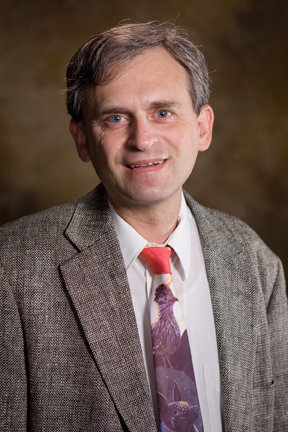Book Contends Diversity of Thought Overlooked at Politically Correct Universities

Maranto co-edited The Politically Correct University: Problems, Scope, and Reforms published by American Enterprise Institute Press
FAYETTEVILLE, Ark. – Political correctness in higher education puts a damper on critical thought and research that could be considered too controversial, according to a University of Arkansas professor who co-edited a new book on the subject.
"Important research questions are not being asked or are being asked in the wrong way because we don't have enough diversity of thought," said Robert Maranto. "Conservative perspectives are underrepresented in higher education, which makes universities dull places."
Maranto, University of Arkansas professor of education reform, was lead editor of the volume titled The Politically Correct University: Problems, Scope, and Reforms published by American Enterprise Institute Press. Maranto will give a talk on the book at noon Tuesday, Feb. 23, in Sturgis Hall at the Clinton School of Public Service in Little Rock followed by a book signing. Reserve seats by e-mailing publicprograms@clintonschool.uasys.edu or calling 501-683-5239.
The book's other editors are Richard E. Redding of Chapman University School of Law and Frederick M. Hess, director of education policy studies for the American Enterprise Institute.
Higher education institutions put great emphasis on promoting diversity, according to the editors, but these initiatives usually focus on race, ethnicity, gender and sexual orientation, not necessarily on ideas. Some researchers with conservative views on important social and policy issues such as crime, education, foreign policy, and welfare programs have had difficulty finding academic posts over the years, Maranto said.
Images of academia as a stronghold of liberal thinking are not new, but this new book offers a unique perspective, he said.
"The authors of these chapters present information that uses social science methods and data, rather than anecdotes, to describe what's going on," Maranto explained. "In the book, we make the case that reform of universities needs to come from inside. The editors like universities. We want to build them up, not tear them down."
Some findings noted in the book:
- Conservatives and libertarians among college and university faculty are outnumbered by liberals and radicals by 3-to-1 in economics, more than 5-to-1 in political science and 20-to-1 or more in anthropology and sociology.
- Conservative undergraduates lack role models who share their political views, have more distant relationships to faculty and may have fewer opportunities to do research with their professors, all of which may affect whether they pursue doctoral degrees.
- While the most important factor in career success for faculty is a publication track record, holding socially conservative views has a statistically significant negative impact on career success – equal to about one-third the impact of publications.
 |
"I worked in government during the Clinton years and felt in sync with most of what the Clinton administration wanted to do," Maranto said, "but in academia I'm often considered a raging right-winger. In some ways, that was the genesis of this book."
A dearth of conservative, libertarian and neoliberal thinkers at universities hinders these institutions in one of their most important purposes, that of producing thoughtful citizens, the chapter authors write. They offer a range of solutions such as establishing programs or centers within universities that operate outside official departments and allow conservative faculty members to freely explore particular topics with sympathetic students. They also advocate a larger role for alumni and trustees in overseeing institutions and a change in how liberal arts scholars understand themselves, not as provocative debunkers of accepted ideas, but as discoverers of truth.
Maranto attributes the tendency of professors to hold similar views to simple human nature: "We professors are just like anyone else. We tend to want to hire and promote people like themselves. That's natural, but it's not always best for the organization."
Contacts
Robert Maranto, Twenty-First Century Chair in Leadership
College of Education and Health Professions
479-575-3225,
rmaranto@uark.edu
Heidi Wells, content writer and strategist
Global Campus
479-879-8760,
heidiw@uark.edu
Headlines
PetSmart CEO J.K. Symancyk to Speak at Walton College Commencement
J.K. Symancyk is an alumnus of the Sam M. Walton College of Business and serves on the Dean’s Executive Advisory Board.
Faulkner Center, Arkansas PBS Partner to Screen Documentary 'Gospel'
The Faulkner Performing Arts Center will host a screening of Gospel, a documentary exploring the origin of Black spirituality through sermon and song, in partnership with Arkansas PBS at 7:30 p.m. Thursday, May 2.
UAPD Officers Mills and Edwards Honored With New Roles
Veterans of the U of A Police Department, Matt Mills has been promoted to assistant chief, and Crandall Edwards has been promoted to administrative captain.
Community Design Center's Greenway Urbanism Project Wins LIV Hospitality Design Award
"Greenway Urbanism" is one of six urban strategies proposed under the Framework Plan for Cherokee Village, a project that received funding through an Our Town grant from the National Endowment for the Arts.
Spring Bike Drive Refurbishes Old Bikes for New Students
All donated bikes will be given to Pedal It Forward, a local nonprofit that will refurbish your bike and return it to the U of A campus to be gifted to a student in need. Hundreds of students have already benefited.




